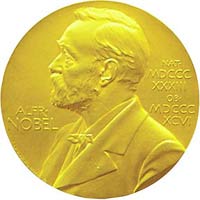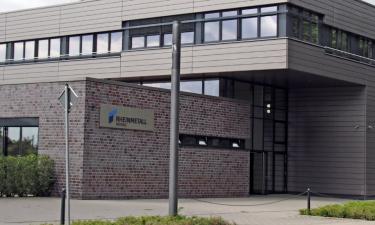Gerhard Ertl of Germany wins 2007 Nobel Prize in chemistry
Gerhard Ertl of Germany won the 2007 Nobel Prize in chemistry on Wednesday for studies of chemical processes on solid surfaces, research that has advanced the understanding of why the ozone layer is thinning.

Ertl's research laid the foundation of modern surface chemistry, which has helped explain how fuel cells work, how catalysts operate in cars and even why iron rusts, the Royal Swedish Academy of Sciences said.
Ertl, who was celebrating his 71st birthday Wednesday, told reporters in a live teleconference that it "is the best birthday present that you can give to somebody. I was really speechless."
"Gerhard Ertl has succeeded in providing a detailed description of how chemical reactions take place on surfaces and has in this way laid the foundation of modern surface chemistry," the award citation said.
Ertl showed how reliable results could be obtained in a difficult area of research, and his findings applied in both academic studies and industrial development, the academy said.
"Surface chemistry can even explain the destruction of the ozone layer as vital steps in the reaction actually take place on the surfaces of small crystals of ice in the stratosphere," the award citation said.
Americans Mario R. Capecchi and Oliver Smithies, and Briton Sir Martin J. Evans, won the 2007 Nobel Prize in medicine on Monday for groundbreaking discoveries that led to a powerful technique for manipulating mouse genes.
On Tuesday, France's Albert Fert and German Peter Gruenberg won the physics award for discovering a phenomenon that lets computers and digital music players store reams of data on ever-shrinking hard disks.
Prizes for literature, peace and economics will be announced through Oct. 15.
The awards - each worth 10 million Swedish kronor (US$1.5 million; EUR1.1 million) - will be handed out by Sweden's King Carl XVI Gustaf at a ceremony in Stockholm on Dec. 10.
Subscribe to Pravda.Ru Telegram channel, Facebook, RSS!




